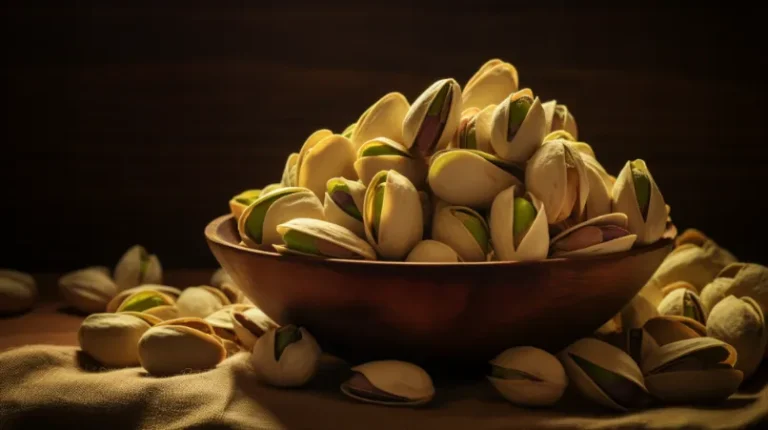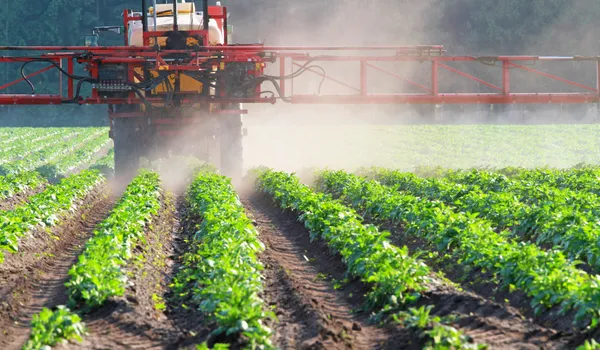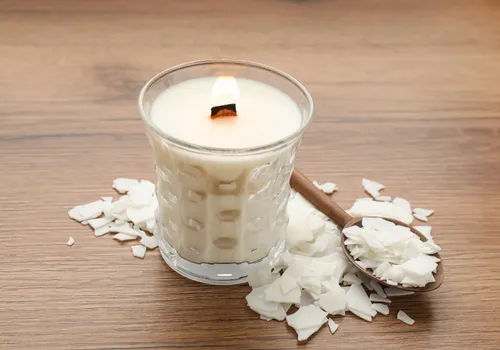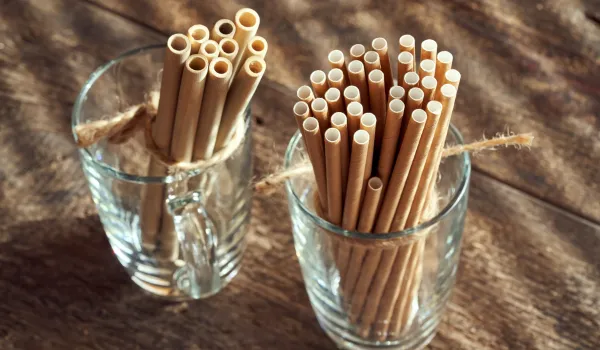Going Green With Glue: Find Out If PVA Glue Is Biodegradable
Learn the facts about the biodegradability of different types of glues, including Elmer’s, PVA, and hot glue.
Have you ever wondered if the common household glue, PVA (polyvinyl acetate) is biodegradable?
With the increasing concern for environmental sustainability, it’s important to know what kind of impact our everyday products have on the planet.
PVA glue is commonly used in crafting and woodworking projects, but does its use contribute to the accumulation of non-biodegradable waste?
PVA glue is a water-based adhesive that has been used for decades in various industries, from construction to paper-making.
Get Your Hand on Your Eco-Friendly Living Starter Guide!
It’s known for its strong bonding properties and ease of use.
However, as we become more aware of our impact on the environment, questions have arisen about whether or not PVA glue is biodegradable.
In this article, we’ll explore the answer to this question and discover how we can make more environmentally conscious choices when it comes to choosing adhesives.
Understanding Polyvinyl Acetate (PVA)

Polyvinyl acetate (PVA) is a type of adhesive that has become increasingly popular due to its versatility and ease of use.
It’s commonly known as wood glue, but it’s used for much more than just woodworking.
This environmentally friendly polymer is widely used in various industries, from construction to arts and crafts.
PVA glue is made by polymerizing vinyl acetate monomers.
The result is a plastic-like material that can be used as an adhesive.
It’s water-soluble, making it easy to clean up with just soap and water.
PVA glue is also non-toxic, making it safe for children to use for school projects or crafts at home.
Its many benefits have made it a go-to choice for anyone looking for an effective and versatile adhesive.
The Biodegradability Of PVA Glue

PVA glue, also known as polyvinyl alcohol or polyvinyl acetate, is a synthetic adhesive that has become increasingly popular for its water-soluble and eco-friendly properties. However, the question of whether PVA glue is biodegradable remains a topic of concern for many.
To answer this question, it’s important to understand what the term ‘biodegradable’ means. Simply put, biodegradable materials are capable of decomposing under natural conditions and without harming the environment.
With that said, PVA glue is indeed biodegradable and environmentally friendly. Here are three reasons why:
- PVA glue breaks down naturally over time: Unlike other synthetic adhesives that can take centuries to decompose in landfills, PVA glue breaks down much faster and does not release harmful toxins into the soil.
- PVA glue is water-soluble: This means that it can easily dissolve in water without causing pollution or harm to aquatic life.
- PVA glue can be made from renewable resources: Some manufacturers are now producing PVA glue from plant-based sources such as cornstarch, making it even more eco-friendly.
In terms of its environmental impact, PVA glue is a far better choice than most other synthetic adhesives on the market. However, there are still some concerns about its production process and potential waste during usage. In the next section, we will explore these issues in more detail and discuss ways to minimize the environmental impact of using PVA glue.
Environmental Impact Of PVA Glue

PVA glue is made up of polyvinyl acetate, so its chemical composition isn’t particularly harmful. It’s biodegradable, which is great news for the environment. However, if it’s used in high concentrations, it can become a pollution risk, so it’s important to use it responsibly.
It also needs to be disposed of properly, as it can cause issues if left in the environment. Fortunately, PVA glue breaks down relatively quickly, so there’s not a huge risk of it causing long-term damage.
Overall, it’s a fairly safe choice for glue, but it’s still important to be aware of its potential impacts.
Chemical Composition
PVA glue, also known as polyvinyl acetate, is a synthetic polymer adhesive commonly used in the woodworking industry. This type of glue is often favored by carpenters due to its strong bonding qualities and ease of application.
However, one of the major concerns regarding PVA glue is its biodegradability. Unlike traditional wood glues made from natural materials such as animal hides or vegetable starches, PVA glue is not biodegradable.
This means that when it is disposed of improperly, it can have negative impacts on the environment. While some manufacturers have attempted to create more environmentally friendly PVA glues with lower volatile organic compounds (VOCs), there are still concerns about how long these products will take to break down in landfills or other waste management systems.
As such, it’s important for consumers to be mindful of their use and disposal practices when working with this type of adhesive.
Biodegradability
When discussing the environmental impact of PVA glue, one of the main concerns is its biodegradability. Unlike traditional wood glues made from natural materials, PVA glue is not biodegradable as it is a synthetic polymer adhesive composed of polyvinyl acetate and water-soluble resins.
This means that when disposed of improperly, PVA glue can negatively impact the environment for an extended period. However, some manufacturers have attempted to make eco-friendlier versions by adding polyvinyl alcohol and acetic acid to create a more biodegradable product.
While these products are water-soluble and contain fewer volatile organic compounds (VOCs), there are still concerns about how long they will take to break down in landfills or other waste management systems. As such, consumers must be mindful of their use and disposal practices when working with PVA glue to minimize its environmental impact.
Pollution Risk
Now, another subtopic to consider when discussing the environmental impact of PVA glue is its pollution risk.
When PVA glue is not disposed of properly and ends up in bodies of water or landfills, it can contribute to plastic waste pollution.
As a synthetic polymer adhesive, PVA glue does not easily decompose and may take several years to break down into smaller pieces, which can be harmful to wildlife that mistake them for food.
To address this issue, some manufacturers have developed eco-friendlier versions of PVA glue that contain polyvinyl alcohol and are more water-soluble.
These biodegradable glues are less likely to contribute to plastic waste pollution and contain fewer volatile organic compounds (VOCs), which are harmful chemicals that can pollute the air we breathe.
However, consumers must still be mindful of their disposal practices as these biodegradable glues may take time to decompose fully in landfills or other waste management systems.
To minimize the environmental impact of PVA glue, it is essential to use it responsibly and dispose of it properly.
Eco-Friendly Alternatives To PVA Glue
Let’s talk about biodegradable glues and the options we have that are eco-friendly and can replace PVA glue.
Biodegradable Glues
Are you looking for an eco-friendly alternative to PVA glue? Look no further than biodegradable glue!
Unlike PVA glue, which is made from a plastic polymer called polyvinyl alcohol, biodegradable glue is designed to have a minimal environmental impact. When exposed to the elements, biodegradable glue breaks down and decomposes over time, making it a fantastic choice for environmentally conscious individuals. Additionally, many types of biodegradable glues are water-soluble, meaning that they can be easily washed away without harming the environment.
The benefits of using biodegradable glue extend beyond just being environmentally friendly. Biodegradable glue is also incredibly versatile and can be used in a variety of applications. From arts and crafts to industrial settings, there’s a type of biodegradable glue that can meet your needs.
So why not make the switch today and start using biodegradable glue? Your conscience (and the planet) will thank you!
Natural Glues
If you’re looking for a more sustainable alternative to PVA glue, natural glues are another option worth considering.
Unlike PVA glue, which is made from polyvinyl alcohol, natural glue is typically water-based and made from organic materials such as starch or cellulose.
This makes it a much more eco-friendly option that can be easily composted or broken down by microorganisms in the environment.
In addition to being compostable and biodegradable, natural glue is also a much more sustainable alternative to PVA glue.
Many types of natural glues are made using renewable resources, such as cornstarch or soybeans, making them a much more environmentally friendly choice.
So if you’re looking for an eco-friendly adhesive that won’t harm the environment, consider making the switch to natural glue today!
Proper Disposal Of PVA Glue And Other Adhesives

When it comes to eco-friendly adhesives, one option that often comes up is PVA glue or polyvinyl alcohol glue. This type of glue is water-soluble and biodegradable, meaning it can decompose naturally over time without leaving a lasting environmental impact.
However, proper disposal is still important to ensure that the glue breaks down as intended. One way to dispose of PVA glue is by letting it dry completely before throwing it in the trash. When exposed to air, PVA glue will eventually harden and become brittle, making it easier to dispose of safely.
Alternatively, you can mix the leftover glue with acetic acid (vinegar) to speed up the decomposition process. If you have a compost bin at home, you can also add small amounts of PVA glue to your compost pile as long as it’s not a significant portion of the overall material.
Overall, while PVA glue may be more environmentally friendly than other adhesives on the market, responsible disposal is still necessary for optimal results.
Conclusion on if PVA Glue is Biodegradable
In conclusion, while PVA glue may be a popular and effective adhesive, its impact on the environment cannot be ignored. As we have learned, PVA glue is not biodegradable and can contribute to pollution in our landfills and waterways.
However, there are eco-friendly alternatives available that can still provide the same level of bonding power without harming our planet.
Let us all do our part in protecting our environment by properly disposing of PVA glue and other adhesives. Just as we carefully sort our recyclables and compostable waste, let us also make sure that harmful substances like adhesives are disposed of responsibly.
Together, we can help create a cleaner and safer world for ourselves and future generations.






